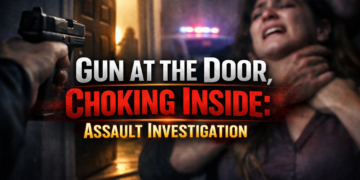Click here for Audio Assist Version
We hear some phrases like “pre-crime” and “thought-crime”.
Criminal law is designed to protect the individual rights of the citizen and the health and well being of a society. In this regard, it is responsible for setting the parameters of our social conduct, and for ensuring consistent application of principle and doctrine across the board. One of the most controversial areas of the criminal law is in penalizing criminal attempts.
When one attempts criminal behavior but does not complete it, should that person still be liable as a matter of public policy? What if a prospective criminal stops a second from shooting their victim, deciding not to follow through their criminal intent? Should that person be penalized for trying to commit a crime that did not occur? In this article, we will consider these arguments and look at possible ways in which they could affect us all.
Criminal law usually concerns itself with punishing those who have committed wrongs against a person or society. This is generally very effective to ensure a sense of lawful community and deterring the bulk of criminals and their actions. However, one of the most pertinent questions most legal systems face is when, if at all, to intervene in perfectly legal behavior to stop a crime from happening?
Consider the example of a gunman looking to murder a close friend. He searches the internet for the best way to kill and not be caught. Should that signal authorities to break down his door? He buys a firearm. Is he arrested at this point for attempted murder? He goes to a hill near his friend’s house with the gun. Here? He aims and begins to squeeze the trigger? How about now?
Consider the scenario of the thief stealing from an empty pocket. Mentally and physically he has committed sufficient acts to be convicted of the crime, but simply because there was no wallet to be stolen, should he walk free? Because there was no wallet, he could never be convicted of theft, but should he be liable in an attempt? The answer in most jurisdictions is yes, but again this presents further complications.
Say, for example, you have a would-be drug dealer who buys several fake drugs. He sells these in the mistaken belief they are illegal – he could never be convicted of supplying controlled drugs, but could he be convicted on the grounds of his attempts? Most jurisdictions again say yes, with the rationale that dangerous people should be stopped in their tracks.
Let’s bring this closer to home. Recently, a student at a local school had an issue in the office. The administrators either sent him home or he decided to leave. On the way out the door, he (allegedly) commented that he was going home to retrieve a gun and return to the school.
Suddenly, a rash of texts went out to various parents. Those concerned parents rushed from work and home to retrieve their children. The parents warned other parents. Within minutes, social media was ablaze and the issue made its way to the Portsmouth Police Department.
As dutiful reporters, our entire staff was engaged with parents and others who had been alerted to the “situation”. None of our reporters made a post. None of our Moderators were permitted to approve a post until the situation was fully vetted. We heard a verification statement from Portsmouth Police that the school did not contact the police. Rather, the calls were coming from parents and students.
Police responded. I, also, drove to the school. The parking lot looked normal. The school seemed to be in the traditional order. The only observation was the presence of two police cruisers on opposite sides of the building. As I sat in the parking lot, the notifications on my phone came in at a fever pitch. From my vantage point, all seemed to be calm and normal.
The police collected statements from the school and did travel to the student’s home. From that point, we have no official report. We collect them every single morning. There was no incident number and no official record of a crime.
In 2002, a movie called “Minority Report” shocked fans with the science fiction concept of arresting people for crimes they were predetermined to commit. The movie was a smash hit and still maintains a 90% rating on Rotten Tomatoes.
In short order, we had policies like “Stop and Frisk”. The Silicon Valley companies specializing in algorithms of predictive policing began to emerge. The companies sell their software to police departments all over the country. Leading the way are companies like PredPol, Mark43, The Omega Group, and Coplink. One of the quotes listed in the PredPol marketing material is “Just Driving Around isn’t a Patrol Strategy”.
PredPol continues by touting “Being able to anticipate these crime locations and times could allow officers to pre-emptively deploy officers and help prevent these crimes.” They also promise to deliver forecasting for crime type, crime location, and crime date and time.
In Ohio, authorities have lesser offenses available to charge a person who has come near to committing a larger crime. They include but are not limited to ORC 2917.31 (Inducing Panic), 2903.211 (Menacing by stalking), 2921.03 (Intimidation) and 2901.01 (General Provisions of Conspiracy).
So, we return to the original question. When does otherwise legal activity merit a “Red Flag” warning? When does not committing the intended crime still become a crime?
Lawmakers are intensely divided over this issue. What is certain is that most law enforcement agencies feel obliged to intervene in, certain circumstances, to prevent harm to their citizens.
For more information about PredPol and their technology Click Here



















































































